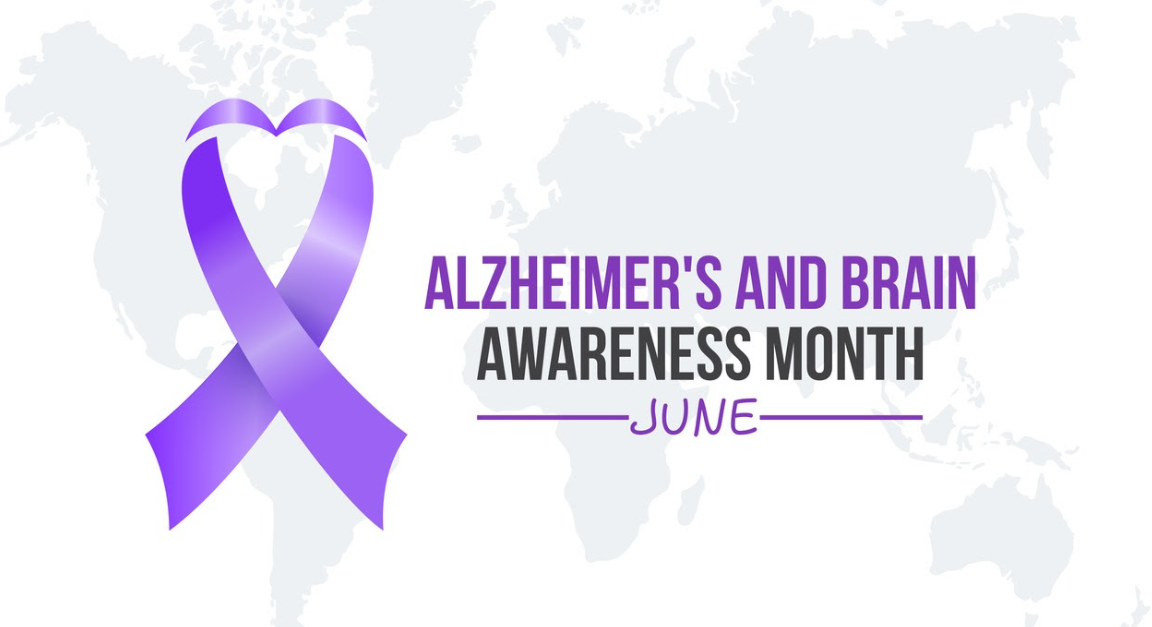June is Alzheimer’s and Brain Awareness Month: Warning Signs and Protective Strategies
Memory often changes as people grow older. Some people notice changes in themselves before anyone else does. For other people, friends and family are the first to see changes in memory, behavior or abilities. Memory loss that disrupts daily life is not a typical part of aging. CDC’s Healthy Brain Initiative, a multifaceted approach to cognitive health, indicates that people with one or more of these 10 warning signs of Alzheimer’s should see a doctor to find the cause. Early diagnosis allows for opportunities to seek treatment and plan for the future.
Warning Signs of Alzheimer’s (find here 3 of the 10)
- Memory loss that disrupts daily life: forgetting events, repeating yourself or relying on more aids to help you remember (like sticky notes or reminders).
- Challenges in planning or solving problems: having trouble paying bills or cooking recipes you have used for years.
- Difficulty completing familiar tasks at home, work or leisure: having problems with cooking, driving places, using a cell phone or shopping.
For more information:
- Warning Signs
- Click here for a link to all 10 of the warning signs.
- Protective Strategies
- Brain health and physical health are especially important as we age. Did you know some people with chronic health conditions are at greater risk for Alzheimer’s? Listen to this podcast to find out about 8 ways to keep your body healthy that may also keep your brain healthy.
- Caregiver Health
- Although caregiving has many benefits, it’s important to recognize that caregivers may be compromising their own health. One in five adults report being a caregiver for a family member or friend, and 21% say they are in only fair or poor health, according to a large, long-term study of more than 252,000 adults. Explore this resource to learn how to respond to changes in communication and behavior, provide everyday care, and get help when needed.
Need a helping hand? Talk to someone about this or any concerns. With TimelyCare and/or EAP there is always someone available to listen and provide support.
Use Your Employee Wellness Resources.
- TimelyCare– Access this helpful resource that is available to ALL NOVA employees.
- EAP– All health plans offered to state employees and their dependents have employee assistance programs (EAPs) available 24/7.

Submitted by:
Dahlia Henry-Tett, HR-Chief Wellness Officer, employeewellbeing@nvcc.edu
